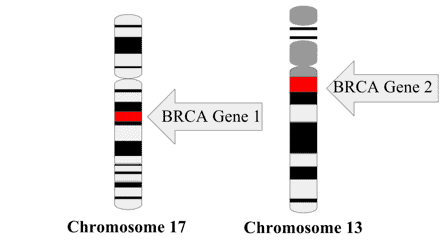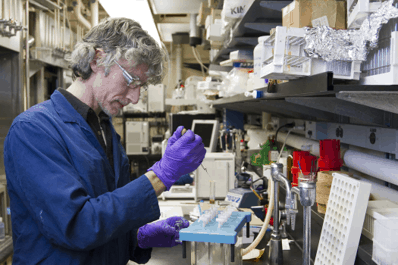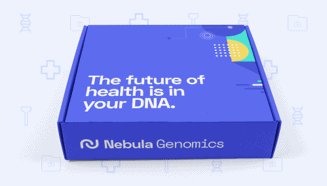Table of contents
Genetic cancer testing helps estimate your chances of developing the disease in your lifetime. The test does this by searching for inherited mutations in your genes or chromosomes. More specifically, it targets genetic variants associated with an inherited susceptibility to a type of cancer.
But what is this test about, and what exactly does it do? What do the results mean? We will be answering those questions and revealing everything there is to know about genetic testing for cancer.
What is Genetic Testing for Cancer?
There are many genetic tests used today to look for mutations in a person’s genes. These variations indicate what type of susceptibilities to conditions or disease the patient has. In this article, we will focus on genetic testing for cancer predisposition.

If a person has been diagnosed with cancer, a different type of genetic test may be used. Here, the doctor will take samples of cancerous cells to search for gene changes. This genetic testing for cancer treatment, called tumor DNA sequencing, can also lead to a better prognosis and a more targeted treatment regimen. These tests search for acquired genes changes in cancer cells.
They are not to be confused with the ones used to discover inherited risk for cancer.
Hereditary Cancer Syndrome
When doctors perform the testing, they essentially look for hereditary cancer syndrome. This term refers to the increased risk of developing certain types of cancer. Mutations in specific genes are passed on from parent to child, creating a family pattern.
Such patterns include having close members of the family developing the same type of cancer at an early age or the same person developing more than one type.
Some common examples of hereditary cancer syndrome are breast and ovarian cancer syndrome, Lynch syndrome, and Cowden syndrome.

Who Should Take Genetic Cancer Testing?
Some types of cancers run in families. Therefore, genetic counseling and testing are recommended for individuals who have a history or patterns in their families.
In some other instances, familial cancer may not be caused by genes. Instead, a shared lifestyle or environment may trigger similar cancers in several family members. This can include tobacco use or living in an area affected by certain types of radiation.
If you can check one or more of the following, it may be recommend taking genetic testing for cancer:
- First-degree relatives (mother, father, sisters, children) with cancer
- One family member with more than one type
- Relatives from one side of the family with the same type
- Cancers in your family linked to only one gene mutation, such as breast, ovarian, and pancreatic
- A family member who suffered cancer at an earlier age than the average
- A family member with a rare form, like retinoblastoma
- Ethnicity with a historical link to certain types
- One or more relatives who took genetic testing for cancer and got a positive test result
A health care provider or genetic counselor is a good place to start if you have concerns about patterns or a family history of cancer. Keep in mind that knowing your family medical history is important since some cancers have unknown genetic mutations associated with them.
Why Should You Consider Genetic Testing for Cancer?
There are different reasons for which you may want to undergo genetic testing for cancer. It is a personal decision you may wish to discuss with your family, counselor, or health care provider.
The American Society of Clinical Oncology (ASCO) recommends considering genetic cancer testing whenever any situations discussed above are present. The results of this test will help diagnose or manage a potential condition. Your doctor will then recommend steps to help reduce the chances of developing the disease. These may include lifestyle changes, medication, frequent cancer screening, or surgery.

ASCO also recommends meeting with a genetic counselor before and after testing. While there are several benefits of genetic testing, such as being able to create a screening plan for earlier detection, there are several other factors involved in the process that cannot be overlooked:
- Cost. Genetic testing for this condition can become expensive. Add to this that most insurance companies will not cover the cost.
- Results may be unclear. Sometimes tests can find a variant of uncertain significance, a mutation not known to be linked with high risk. This result does not mean it is not linked to cancer, but that it is unclear if such mutation increases risk or not. There are still some types that have not been linked to any specific gene mutation.
- Emotional response. A positive result may yield a bevy of difficult emotions, even if it only indicates an increased risk of the condition, not the condition itself. But a negative test result might also spring up feelings of guilt for not having the same gene mutation that other family members have.
- False security. Negative results indicate that there is no mutation present. However, this does not mean that a person will not develop the condition at some point in life. A negative result is not equivalent to zero cancer; it merely means that a person’s risk of developing it is average. Also, remember that external factors increase the chances of getting the condition, such as smoking, lifestyle, environmental exposure, and other medical conditions.
- Privacy concerns. Many people have serious concerns about what is going to happen to their information. Some people even fear discrimination based on their results. These concerns should be addressed to a counselor or health practitioner.
The Most Common Types of Genetic Cancer Testing
Genetic cancer testing is available for some forms. They include:
These are, in general, the most common forms of cancer worldwide. In the United States, the most common is breast cancer. Two very well-known genes named BRCA1 (BReast CAncer gene 1) and BRCA2 (BReast CAncer gene 2) are responsible for several types, most particularly breast and ovarian.

Meanwhile, colon and pancreatic cancer are the second and third leading causes of cancer death, lower only to lung cancer.
BRCA gene mutations
BRCA1 and BRCA2 are two genes that codify for the manufacture of repair proteins. We all inherit one copy of these genes from each of our parents. If these genes suffer any harmful or pathogenic change, they mutate, and the person is at risk of breast cancer. This is why they are sometimes referred to as “tumor suppressor genes.”
If a person inherits a harmful variant of these genes, they have a higher risk of developing certain cancers-especially breast and ovarian. This can also cause you to develop breast cancer at a younger age.
An individual may inherit the harmful variant in BRCA1 or BRCA2 from either parent. This makes each child of a parent carrying a mutation of one of these genes have a 50% chance of inheriting it.
If two egg cells with a harmful mutation of these genes join, the embryo will not likely develop. This means that if you inherit a harmful gene from one parent, you have a normal one from the other.
But at some point in life, this normal gene can get lost or change in some cells. This somatic alteration results in cells in your body with two non-functional BRCA1 and BRCA2 proteins. These cells can grow out of control and become cancerous.
If you want to learn more about how genomics is transforming medicine by early detection of these and other mutations, check out this article on the future of genomic medicine.
We have reviewed some genetic tests that detect BRCA1 and BRCA2 mutations:
Research on Genetic Testing for Cancer [September 2021]
New cancer studies and research is constantly producing updates that help us better understand the nature of the disease and the causes that lead to cancer. Although there is no cure, treatments can help cure or manage some cancers.
We mentioned above that breast cancer is the most prevalent form. This has made testing for these risk factors evolve through recent years, making it the most common. Despite that, not much is known about how this testing impacts treatment for patients. This 2017 paper from the Journal of Clinical Oncology discusses these limitations for early-stage breast cancer.

More insights on BRCA1 and BRCA2 have revealed that there is still space for improvements in detecting genetic predispositions to cancer. Take a look at this 2019 study about genetic testing and results in breast and ovarian cancer patients.
Thanks to studies like the two mentioned above, genetic testing for cancer has enhanced over the years. Since these two genes were discovered from 1994 to 1995, there has been continuous research on how they impact cancer development in all types of patients. Constant research on the matter has allowed better treatments for patients and better life quality.
FAQ
Do people with a positive cancer DNA test always develop it?
No, a positive result does not mean that you will certainly develop cancer. It means that you have a mutation in BRCA1 or BRCA2 and are therefore at a higher risk than the average population.
Which type of cancer is hereditary?
Cancers caused by a mutation in a gene that is passed on to the offspring are considered inherited cancer. A fraction of all known types are hereditary and include some types of breast, colon, pancreatic, ovarian, and prostate cancers.
How is genetic testing done?
Testing for cancer variants needs a blood or saliva sample. The lab analyzes them, and results usually come back after several weeks. Some tests are performed in a doctor’s office while others you may collect the sample from home with practical at-home genetic testing.
How much does it cost?
The cost for diagnostic testing is usually high and ranges from $300 and $5000. At-home genetic tests vary wildly, some of them are at $250, and others can cost up to $4000. You can check out more reviews on our blog for the cost of each at-home test. Cost may also depend if your test is covered by health insurance or not.
At what age should you get tested for BRCA genes?
Most organizations will recommend getting tested at around 25 years of age. This is also the age at which periodic screening and manual exams for breast cancer should start.
Are there any disadvantages of genetic testing?
As we mentioned earlier, several factors influence your decision to take a genetic cancer test. Some of these are drawbacks, like the fact that testing for cancer itself does not eliminate the risk. Testing may also increase anxiety, and some results may be inconclusive.
Can a blood test detect cancer in the body?
Blood tests alone will not detect cancer. However, they can tell what is happening in your body, leading to a more rigorous cancer-detection test.
Nebula Genomics
Nebula Genomics offers the most comprehensive genetic test thanks to our 30x Whole Genome Sequencing test that decodes 100% of your DNA. This analysis includes the detection of BRCA1 and BRCA2.

You can take control of your health by having accurate information on your genetic composition. Nebula is not a diagnostic test, but with a price of $299 or less it is one of the most reasonable direct to consumer tests available to conduct a risk assessment. With results of the highest quality, you can take your results to your doctor or genetic counselor to discuss additional assessments, screening, and treatment options.
Plus, since whole genome sequencing decodes your entire genome, you can continue to discover new insights about your risk as research continues to make advances and discover new variants associated with hereditary cancer.
With early detection of a possible risk of developing cancer, you can take more effective steps to switch to a better lifestyle and healthier habits.
If you liked this article, you should check out the posts in the Cancer Genetic Testing series and explore the Nebula Research Library to learn about hundreds of other conditions influenced by genetics, including many cancers.
Cancer genetics:
- Colon cancer genetic testing – Can it help you plan colonoscopies?
- Pancreatic Cancer Genetic Testing – Better prevention possible?
- Genetic testing for breast cancer – Why, when, how, and where?
- What is Genetic Testing For Prostate Cancer?
- What is Ovarian Cancer Genetic Testing?
September 14, 2021
Edited by Christina Swords, Ph.D.
